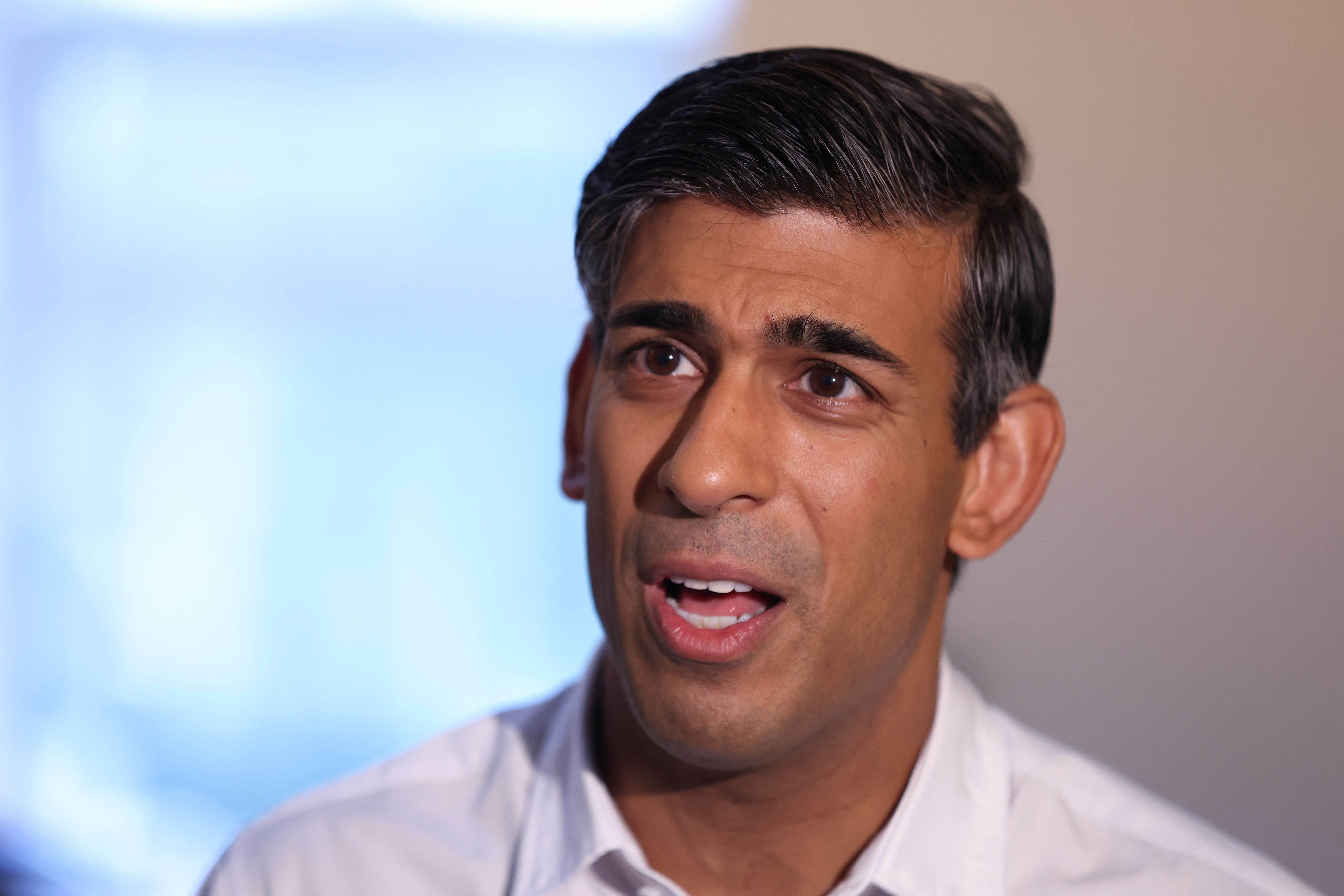Rishi Sunak’s HS2 axe means Labour may need to cut demand for trains – report
The then-prime minister announced last October that plans to extend the high-speed railway between Birmingham and Manchester had been scrapped.

Rishi Sunak’s decision to curtail HS2 means the public may need to be incentivised not to travel by train, according to Whitehall’s spending watchdog.
The National Audit Office (NAO) said the then-prime minister’s announcement last October that plans to extend the high-speed railway between Birmingham and Manchester had been axed means the Department for Transport (DfT) will need to address “capacity issues”.
Following Mr Sunak’s decision, the DfT said HS2 trains will run north of Birmingham on the existing West Coast Main Line (WCML).
The NAO said this “may provide some time savings” on journeys running through to London, but “will not improve capacity on the line”.
This may constrain economic growth in the region over the long term and increase environmental costs
Its report stated that HS2 services will have fewer seats than those currently operating unless changes are made to infrastructure and stations to accommodate longer trains.
It noted that HS2 Ltd – the Government-owned company responsible for building the new railway – estimates there could be a 17% reduction in capacity between Birmingham and Manchester, while the DfT believes the WCML could reach capacity by the mid-2030s.
The NAO said one option for the DfT could involve “managing demand” – for example by “incentivising people to travel at different times or to not travel by rail”.
It went on: “This may constrain economic growth in the region over the long term and increase environmental costs.”
Another possibility could be improving or adding infrastructure but “this may be expensive and disruptive”, according to the watchdog.
This is a project of unprecedented scale and complexity, and the cancellation of Phase 2 has increased our cost challenges. We are now making sweeping reforms to control costs better and deliver the next stage of the programme
The report also found it will cost HS2 Ltd up to £100 million and take up to three years to scale back its plans following Mr Sunak’s decision.
The process involves decommissioning and closing down construction sites, and reinstating land to its original state.
A spokesman for HS2 Ltd said: “This is a project of unprecedented scale and complexity, and the cancellation of Phase 2 has increased our cost challenges.
“We are now making sweeping reforms to control costs better and deliver the next stage of the programme – passing peak construction between London and the West Midlands, and starting the transition to a working railway.”
The DfT has been approached for a comment.
Mr Sunak announced he will resign as Conservative leader following his party’s defeat to Labour in the general election.
Transport is an essential part of our mission to rebuild Britain – and we're committed to delivering infrastructure that works for the whole country
Transport Secretary Louise Haigh said: “It’s long been clear that the Conservatives recklessly mismanaged HS2 and allowed the costs to spiral entirely out of control – but this report lays bare the scale of their mistakes.
“We are reviewing this report’s findings, alongside the position we have inherited on HS2 and wider transport infrastructure, and will set out next steps in due course.
“Transport is an essential part of our mission to rebuild Britain – and we’re committed to delivering infrastructure that works for the whole country.”
Bookmark popover
Removed from bookmarks